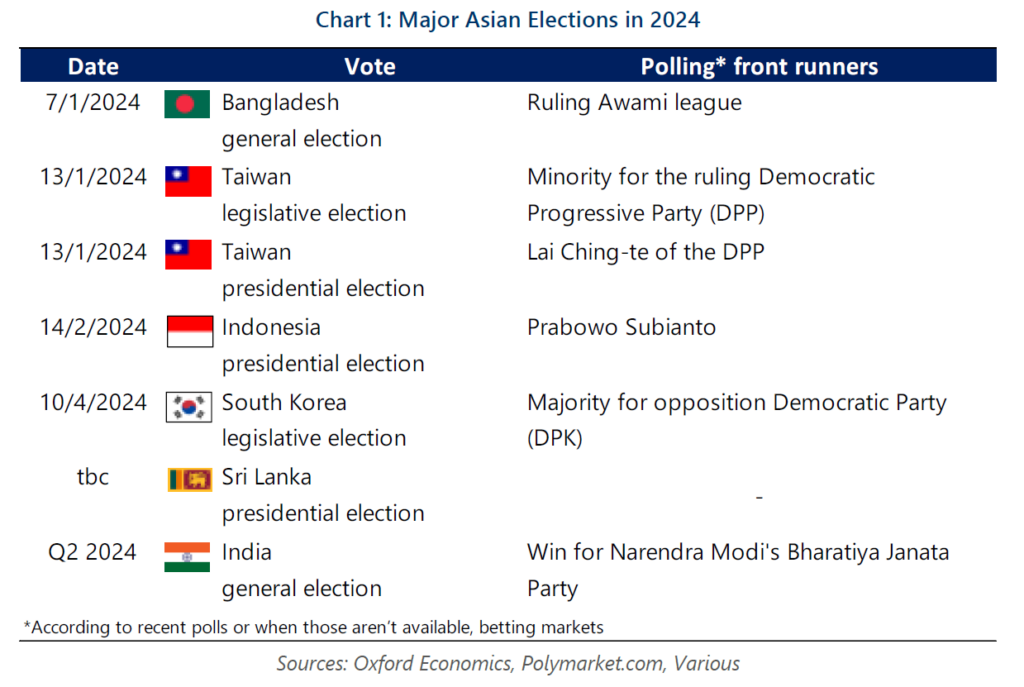How politics could affect APAC economics in a busy 2024 – a primer
In this report, we present some preliminary research on how politics could affect APAC economics in a busy 2024. Our view is that the flurry of elections across Asia this year generally do not look like high-risk events for investors.
What you will learn:
- General elections in Bangladesh on January 7 are raising questions around election fairness, which risks antagonising the governments of key export markets. Bangladesh depends on exports to drive its low-wage manufacturing economy.
- Indonesia will vote for a new president on 14 February. Policy continuity with the outgoing president, Joko Widodo, is also likely to be maintained, though victory for the third-polling candidate, Anies Baswedan, could mean a bigger change in direction.
- Elections in India will take place over several weeks during April-May 2024. The incumbent Bharatiya Janata Party (BJP) and its leader Prime Minister Narendra Modi are front runners in the current polls. We assume continuity in overall economic policy, although we could see a bump in fiscal spending early this year in the run up to the polls.

Tags:
Related Posts

Post
Rapid ageing a tailwind for the aged care sector in Asia Pacific
We believe aged care is emerging as a prominent sector in Asia with a robust growth outlook.
Find Out More
Post
The Deglobalisation Myth: How Asia’s supply chains are changing
Despite talk of deglobalisation, a quantitative analysis of intermediate goods show global supply chains have continued to expand in the last five years. Amid a volatile world economy, swiftly evolving supply chains are minting new winners and losers in global trade.
Find Out More
Post
The big questions for China macro policy this year
Ahead of this spring's Two Sessions, we expect officials to realistically stake their growth target at around 4.5% in 2024 – a more sustainable, though likely still above-potential, pace than in 2023.
Find Out More